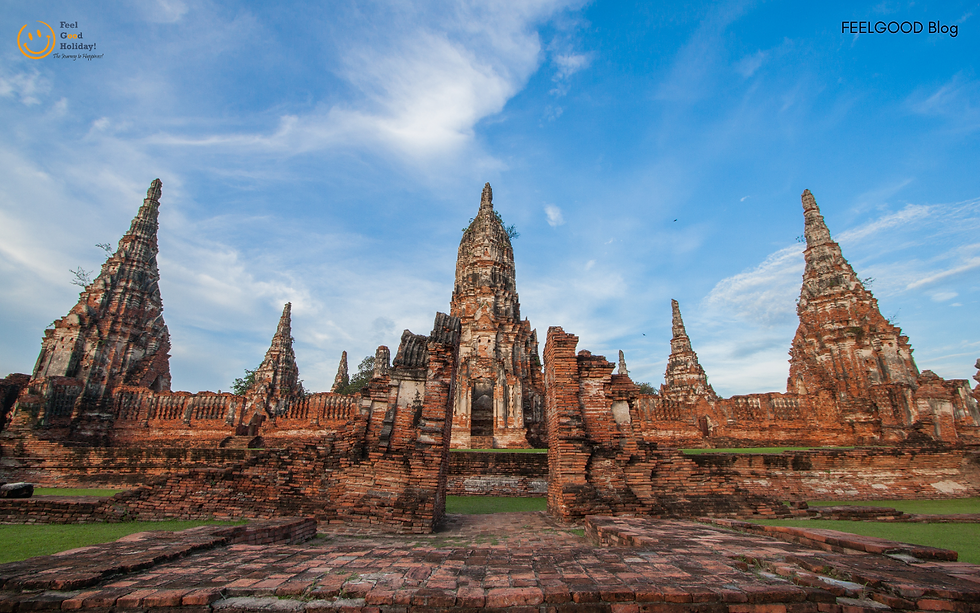History of Thailand
- Nattasha Rattanapian

- Mar 15, 2024
- 2 min read
Updated: Mar 18, 2024

The history of Thailand is rich and complex, with a timeline spanning thousands of years. Here's an overview of key periods and events in Thailand's history:
1. Prehistoric Period: Archaeological evidence suggests that humans inhabited the region now known as Thailand as early as 40,000 years ago. Hunter-gatherer communities and early agricultural settlements emerged during the Neolithic period.
2. Ancient Kingdoms: Thailand's recorded history begins with the rise of powerful kingdoms in the region. The earliest known kingdom was the Dvaravati culture, which flourished from the 6th to the 11th centuries in present-day central Thailand. This was followed by the emergence of the Khmer Empire, which ruled much of modern-day Thailand from the 9th to the 15th centuries, leaving behind magnificent temple complexes such as Angkor Wat.
3. Sukhothai Kingdom: In the 13th century, the Sukhothai Kingdom was founded by King Ramkhamhaeng, marking the beginning of Thailand's nationhood. Sukhothai is often regarded as the first truly independent Thai kingdom, known for its promotion of Theravada Buddhism, administrative reforms, and cultural advancements.
4. Ayutthaya Kingdom: The Ayutthaya Kingdom, established in 1351, became one of the most powerful and prosperous kingdoms in Southeast Asia. Ayutthaya was a center of trade and culture, attracting merchants and diplomats from around the world. However, the kingdom faced constant threats from neighboring states and was eventually sacked by the Burmese in 1767.
5. Thonburi and Rattanakosin Periods: Following the fall of Ayutthaya, General Taksin established the Thonburi Kingdom in 1767. He later founded the Rattanakosin Kingdom in 1782, with Bangkok as its capital. The Chakri dynasty, which still rules Thailand today, was founded by King Rama I. This period saw the expansion of Thai territory, the modernization of the state, and the establishment of diplomatic relations with Western powers.
6. Colonial Era: Despite maintaining its independence, Thailand faced pressure from colonial powers during the 19th and early 20th centuries. The country managed to avoid colonization by negotiating treaties and concessions with European powers, earning the nickname "the Land of the Free."
7. 20th Century: Thailand experienced political upheaval and modernization throughout the 20th century. The country transformed from an absolute monarchy to a constitutional monarchy in 1932 following a bloodless revolution. Thailand played a strategic role during World War II and the Cold War, aligning itself with the United States against communism.
8. Contemporary Period: In recent decades, Thailand has undergone rapid economic development and urbanization. However, the country has also experienced periods of political instability, including military coups and protests. Despite these challenges, Thailand remains a vibrant and culturally rich nation, known for its hospitality, cuisine, and tourist attractions.

Throughout its history, Thailand has maintained a distinct cultural identity, blending indigenous traditions with influences from neighboring civilizations and global trade networks. Today, the country is known for its resilience, diversity, and dynamic cultural heritage.




Comments